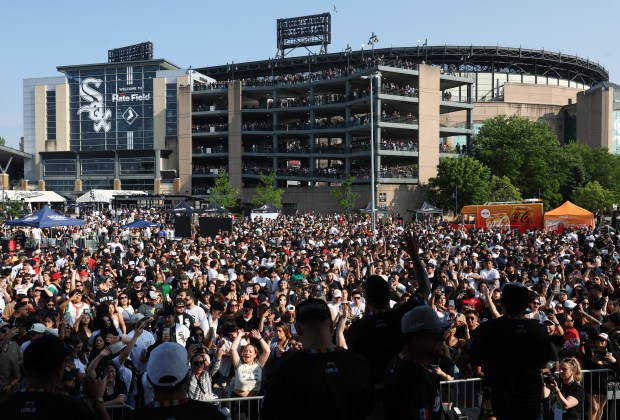Chicago dollar stores could face restrictions on where new locations can open and added pressure to show they are trying to keep their premises clean as the City Council considers an ordinance targeting them Wednesday.
The so-called small-box retailer ordinance would prohibit store operators from opening at new sites within one mile of preexisting locations. It would require new stores to display placards with maintenance and emergency information.
The legislation seeks to rein in the businesses sponsor Matt O’Shea says have hurt access to healthy food in poor neighborhoods and left stores across the city unkempt.
“This is not a struggling small business barely making ends meet,” O’Shea said at a January hearing on the ordinance. “This is a Fortune 200 company that has demonstrated absolutely no interest in being a good neighbor or being responsible to local government.”
The legislation appears poised to pass, several aldermen said Tuesday.
It targets medium-sized stores that typically charge less than $5 for goods. It makes a number of exceptions to narrowly focus on dollar stores, including passes for pharmacies, gas stations and specialty food stores.
The three main dollar store retailers — Dollar Tree, Dollar General and Family Dollar — have 150 locations across Chicago, according to O’Shea.
He first introduced the ordinance in early October, and it passed committee a month ago before a vote was delayed during its first full City Council appearance. Dollar store operators said they were surprised to learn the legislation would come up for a vote Wednesday, a push forward they say eschews efforts to reach a compromise.
The legislation originally sought to block operators from opening new stores within two miles of preexisting locations before the distance was shortened.
The ordinance includes exemptions allowing new dollar stores to open within one mile of each other if they plan to dedicate at least 10% of their floor space to fresh foods like meat, seafood and produce.
But despite the shorter range, Dollar Tree argued the one-mile radius would amount to “essentially a moratorium” on new stores and would not help solve Chicago’s food desert woes.
“In fact, as acknowledged by a number of government officials in our many conversations, it will bring more harm than help to the very communities it claims to support by limiting the flexibility to improve stores and provide new offerings to people in these communities,” the company’s statement said.
Dollar Tree, which also owns Family Dollar, said it is “committed to doing our work better.” The company pledged that it is working more closely with government and improving stores “where historically there was insufficient investment.”
“We understand and support the desire to make things better, and we remain committed to the city and to our stores, our people and our customers in Chicago,” the company wrote.
The City Council will also vote Wednesday to an ordinance launching a sweeping staffing analysis of Chicago police.
And aldermen were set to consider a series of costly settlements at Wednesday’s meeting, including a $3.25 million settlement for the family of a woman who was struck by a police cruiser and died three years later allegedly in part because of her severe head injuries.




